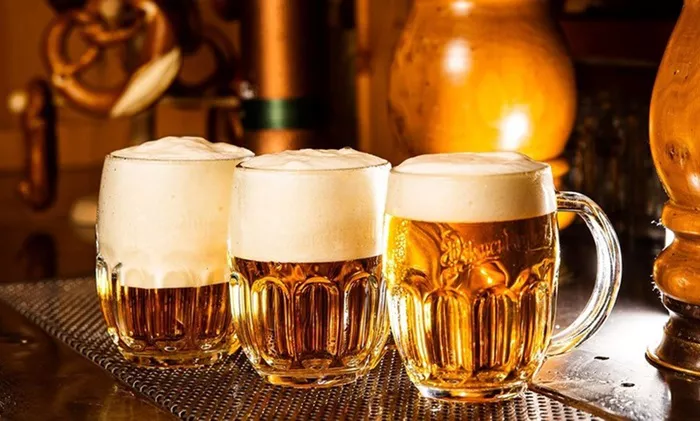In recent years, hard seltzer has surged in popularity. This fizzy beverage has captured the attention of many drinkers looking for lighter options. With its fruity flavors and lower calories, hard seltzer seems like a healthy alternative to traditional beer. But is seltzer really better for you than beer? To answer this question, we need to examine the ingredients, nutritional content, and potential health impacts of both drinks.
Beer has been enjoyed for centuries and comes in various styles and flavors. It typically contains water, malted barley, hops, and yeast. These ingredients contribute to the unique taste and aroma of each brew. However, beer also tends to be higher in calories and carbohydrates. As more people become health-conscious, they often seek alternatives. This has led to the rise of hard seltzer, a drink made from carbonated water, alcohol, and flavorings. While both beverages have their pros and cons, understanding the differences can help you make an informed choice.
Nutritional Content
When comparing seltzer and beer, the first aspect to consider is their nutritional content. Hard seltzer usually contains fewer calories and carbohydrates than beer. A typical 12-ounce can of hard seltzer has about 100 calories and 2 grams of carbohydrates. In contrast, most beers range from 150 to 200 calories and can have over 10 grams of carbohydrates. This difference can significantly impact your overall diet, especially if you’re watching your calorie intake.
Another critical factor is the alcohol content. Hard seltzers generally have an alcohol by volume (ABV) of around 5%, similar to many light beers. However, some craft beers can have much higher ABV levels, leading to more alcohol consumption with fewer drinks. For those looking to moderate their alcohol intake, hard seltzer might seem like a more manageable option.
Ingredients and Additives
The ingredients used in seltzer and beer can also influence their healthiness. Seltzers often use natural flavors, which can vary in quality. Some brands use real fruit extracts, while others may rely on artificial flavorings. If you prefer a cleaner ingredient list, it’s essential to read labels carefully. Many hard seltzers are gluten-free, making them suitable for individuals with gluten sensitivities.
On the other hand, beer is made from grains, which can contain gluten. This aspect makes traditional beer unsuitable for those with celiac disease or gluten intolerance. However, there are gluten-free beers available that use alternative grains like sorghum or rice. It’s crucial to be mindful of your dietary restrictions when choosing between these beverages.
See Also: Is Heineken Beer Vegan?
Hydration Levels
Hydration is another essential factor when discussing beverages. Beer is a diuretic, which means it can lead to increased urination and potential dehydration. Drinking beer in moderation is generally fine, but excessive consumption can negatively affect hydration levels. Seltzer, particularly if it’s non-alcoholic, can contribute to hydration due to its water content. However, the hydration benefits of hard seltzer diminish when alcohol is involved.
When drinking hard seltzer, it’s crucial to remain aware of your overall fluid intake. If you choose to indulge, consider pairing it with water to maintain proper hydration. This approach can help you enjoy the flavors of seltzer without compromising your hydration status.
Impact on Weight Management
For many individuals, weight management is a significant concern. The lower calorie count of hard seltzer makes it an attractive option for those trying to lose or maintain weight. Additionally, the lower carbohydrate content means less sugar intake, which can be beneficial for those watching their blood sugar levels.
Beer, particularly craft and heavier styles, can contribute to weight gain if consumed in excess. The higher calorie and carbohydrate content can add up quickly, especially when enjoying several drinks during social events. If you’re focused on weight management, opting for hard seltzer may be a more suitable choice. However, moderation is key with both beverages.
Social Context and Consumption
Social settings often influence our beverage choices. Beer has long been a staple in gatherings, from barbecues to sporting events. It carries cultural significance and is often associated with camaraderie and celebration. On the other hand, hard seltzer is increasingly popular at social events, particularly among younger drinkers. Its light, refreshing nature makes it an easy choice for warm weather gatherings.
The context in which you drink can impact your overall experience and enjoyment. Choosing a beverage that aligns with your social environment can enhance your experience. Whether you prefer beer or seltzer, it’s essential to enjoy these drinks responsibly.
Health Implications
Both seltzer and beer can have health implications when consumed regularly. Moderate alcohol consumption has been linked to some potential health benefits, such as improved heart health. However, excessive drinking can lead to various health issues, including liver disease, addiction, and mental health problems. Understanding your limits is crucial regardless of which beverage you choose.
Hard seltzer, while often perceived as a healthier choice, still contains alcohol. Overindulging in seltzer can lead to similar health risks as drinking beer. It’s essential to monitor your alcohol intake and practice moderation with both types of beverages.
Conclusion
So, is seltzer better for you than beer? The answer is not entirely straightforward. Hard seltzer generally has fewer calories and carbohydrates, making it a more appealing option for those focused on weight management. However, beer has a rich history and cultural significance that many enjoy. Ultimately, the best choice depends on your individual health goals, dietary restrictions, and personal preferences.
Both beverages can be enjoyed in moderation as part of a balanced lifestyle. Whether you choose hard seltzer or beer, the key is to be mindful of your consumption and enjoy responsibly. Understanding the differences in nutritional content, ingredients, and health impacts can help you make the best choice for your unique situation. As always, consult with a healthcare professional if you have specific dietary concerns or health conditions.
You Might Be Interested In:


